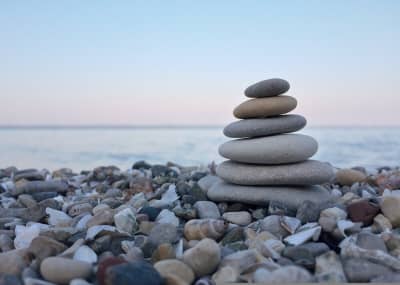On the farm the work was never done. My Grandfather and Uncles laboured fourteen hours a day and there was always more to do. The cows needed to be milked and the milk prepared for transport to the dairy. The fat stock had to be fed and inspected. The fields needed to be ploughed and harrowed and planted, then fertilised and sprayed and harvested – and then ploughed again. A farm is a business, so there were bills and wages to pay, and seed merchants to contact, and machinery to repair.
The work was never done in the farm house either. There was no central heating, so there were fires to rake out and lay, meals to cook for a family of seven, the constant round of cleaning, and the tiled kitchen floor that had to be swept and mopped every day and then polished – a hands and knees job – every Wednesday.
We children were expected to get good marks at school, and so homework was a priority. We had to work hard.
The work never seemed to stop. I would escape into a book, but if I didn’t hide away sufficiently well, I would be found and put to work, as the devil finds work for idle hands; although I never understood how the devil could use my hands if they were busy holding a book.
I know now my mother was under enormous stress, running that big house, with little or no help. I have forgiven her for calling me lazy. Yet that “lazy” epithet has followed me around for more than 50 years, whispering in my ear every time I sit and do nothing. I know it is the same for my mother, who received the same message from her mother. Even now, at 86, her hands are rarely idle. She may be watching Bargain Hunt, but her hands will be busy with her knitting, her crochet, her quilting. She must always be doing something productive, and so must I.
This illness is teaching me a hard, but much needed lesson.
Sitting on the sofa, doing nothing but resting or sleeping; occasionally receiving visitors, who exhaust me after twenty minutes; even more occasionally reading a chapter of a familiar and much-loved book, has me examining where my sense of self worth comes from. Have I intrinsic worth, or is my value only in the services I provide and the objects I produce?
I don’t think there is harm in taking pride in serving others or in producing something useful or precious or beautiful, but if we find our worth only in that, what happens when we are unable to do any of those things?
My father-in-law, in the care home, feels he is useless and a burden, and I totally understand that. I too, feel useless.
A friend reminded me this week that we are human beings and not human doings, and asked me to meditate on that.
We have worth when we do nothing and produce nothing.
I’m still working on accepting that one. I’ll let you know when I get there.


Comments
You need to be Logged In and a Moodscope Subscriber to Comment and Read Comments